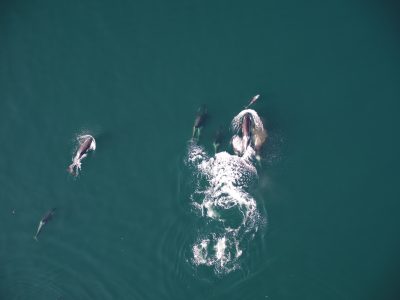International Women in STEM Day at IOF: Science that Protects Oceans, Communities, and Futures
IOF is highlighting a few of the women across the Institute whose work shows what science looks like when it is built for impact.
Following manatees across changing coastlines
A special focus on Lesser-Known Marine Mammals
Not all waves are created equal
It was found that when elevated water levels and the right wave direction line up, inundation risk jumps. This is particularly true during El Niño, when regional sea level sits higher.
Breaking down research silos to understand a shifting Salish Sea
The Sentinels of Change Alliance shows what’s possible when collaboration is a foundation, not an add-on
Orcas and dolphins seen hunting together for the first time
Canadian researchers capture rare video of killer whales and dolphins working together to forage salmon off B.C. coast, suggesting the two species have forged a co-operative relationship
Coral Reef Survival: Depth, Marine Protected Areas, and Seascape Structure Are Key
Living corals are more likely to survive and thrive when found in deeper water, within Marine Protected Areas (MPAs), or in compact reef patches
Marine heatwaves quietly rewire ocean food webs
These bursts of extreme ocean heat are also reshaping the entire structure and function of marine food webs, with consequences that can last years after the water cools
Dr. William Cheung inducted as a Fellow of the Royal Society of Canada
On Friday, November 14, 2025, Dr. William Cheung, professor and Director of the Institute for the Oceans and Fisheries, was inducted into the 2025 cohort of Royal Society of Canada (RSC) Fellows.
Diet alone doesn’t explain divergent health of California Sea Lions in US and Mexico
Instead of asking whether sea lions are eating the right food, the answer, it seems, depends on where they happen to live.









